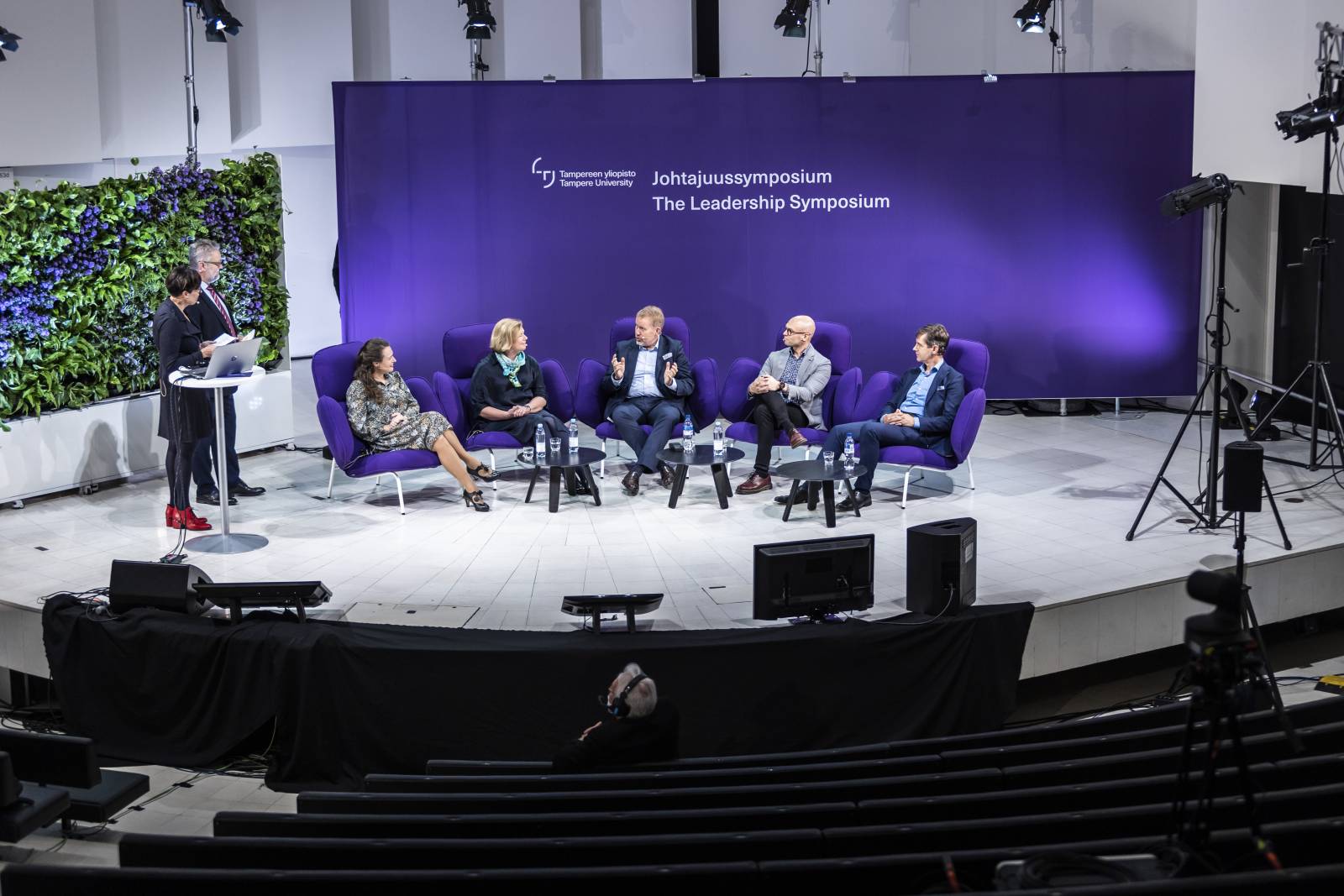Research
We carry out international world-class research that cuts across disciplinary boundaries in the areas of administrative sciences, business sciences, politics, information and knowledge management, and industrial engineering and management. We are especially looking to address the broad and complex challenges facing our society. The Faculty Council confirmed our research strategy in 2021.
As set out in our research strategy, our research development activities focus on fostering an inspirational research environment and culture and expanding research resources and competencies. To achieve these goals, we took steps to identify research potential at the level of units, offer more pre-award support, host research events (such as morning coffee events, research afternoons and information sessions ahead of the Academy of Finland’s funding calls), monitor research output and develop related incentives (for example, by compiling publication count statistics, awarding the best papers and promoting open access to research outputs). The share of papers that appeared in publication channels placed at the JuFo levels 2 or 3 increased by 24% in 2021. Of all our peer-reviewed papers, 71% were made openly accessible. We defined the criteria that our research centres must meet and launched a call to establish research centres within MAB.
The majority of our external funding comes from the Academy of Finland. One of the highlights of the year 2021 in terms of grant success was the funding awarded to the new Centre of Excellence in Tax Systems Research. In 2021, we employed five academy research fellows and five postdoctoral research fellows and had 14 ongoing research projects funded by the Academy of Finland. Nine high-impact projects were funded by the Strategic Research Council (SRC) of the Academy of Finland. We also participated in one project included in the Academy’s national roadmap for research infrastructures.
One of our goals for the year under review was to encourage our researchers to apply for competitive international research grants and thereby increase our external funding. As a result, we saw an increase in our international funding and had seven research projects funded under the EU’s Horizon 2020 programme underway in 2021. We also have a prominent role in both of the new multidisciplinary research platforms funded by Tampere University.
We recruited new staff despite the pandemic circumstances and hired seven new academic employees on the tenure track in 2021. Two persons were promoted to the next rank on the tenure track.
Education
Our portfolio of degree programmes expanded when we took over the degree programmes related to information and knowledge management and industrial engineering and management on 1 August 2021. Owing to the careful preparations, the transition went smoothly. Due to the transfer, we conferred almost 1,000 degrees, which is an exceedingly large number, especially considering the exceptional circumstances of dealing with the Covid-19 pandemic. Our graduation rates remained unchanged despite the pandemic, which supports our efforts to achieve the University’s graduation rate target.
As the prolonged pandemic raised growing concerns about the well-being of our students and staff, we stepped up our efforts to implement remote and hybrid teaching solutions that promote teacher-student interaction and build a sense of community. In early 2021, a return to pre-pandemic normalcy seemed possible and students were again largely able to make normal progress towards their degree. During the autumn semester when teaching was delivered primarily in a virtual environment, the number of students who earned no credits tripled and the number of students who earned 60 or more credits was halved. There are probably multiple reasons for this, such as the fact that the economic boom increased the demand for labour and remote learning made it possible for students to take on part-time or full-time employment. We will conduct a more in-depth analysis of the situation in 2022.
In the past few years, we have created additional study places to meet the national goals set by the Ministry of Education and Culture. As the increase in study places has been managed without a proportionate expansion of staff, the situation has taken a toll on our teaching staff and support staff. Digital education tools have proven to be effective in the delivery of teaching to a large number of students and are here to stay as a supplement to in-person teaching. Digital education also provides students with more flexibility and enables them to fit work around studying, especially towards the later stages of their studies.
Societal impact
Interaction with the broader society is an integral part of our activities. We carry out much of our research in collaboration with companies and other external stakeholders, and our staff members contribute to legislative drafting and the development of national and regional governance through different working groups and by completing reports and assessments. Our staff members hold prominent positions of trust in the public, private and third sectors. The themes that were frequently discussed in our interactions with society in 2021 included the impact of the Covid-19 pandemic and the subsequent restrictions, safety and security, and circular economy.
In terms of societal impact, our most high-profile event is the annual Leadership Symposium, which we organised for the tenth time in 2021. The event focused on sustainable development and security. The line-up of speakers featured R. Edward Freeman, an American philosopher and professor of business administration at the University of Virginia, Teija Tiilikainen, director of the European Centre of Excellence for Countering Hybrid Threats, Paul Dendale, president of the European Association of Preventive Cardiology, Risto Siilasmaa, chairman of the Board of Directors of F‐Secure Corporation, Cecilia Warrol, programme director, international adviser and senior expert to manufacturing industry in Sweden, and Anna-Kaisa Ikonen, mayor of Tampere. The event, organised in a hybrid format, attracted more than 10,000 participants.

